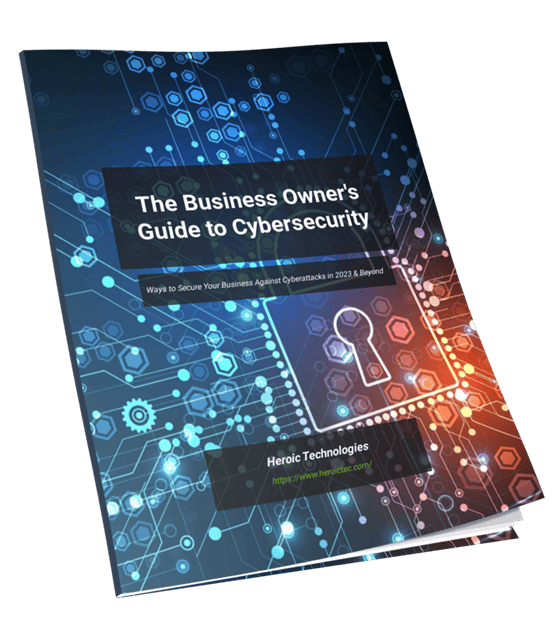
Contact Us
Fill out the following form to get a free consultation and find out how we can help you fight cyber crime and technology issues!
California: (408) 533-8890
Oregon: (503) 766-5985
Washington: (206) 312-6540

Law firms are constantly facing a critical clash between their IT infrastructure and the ever-evolving threats posed by cyber-attacks and data vulnerabilities. As technology continues to advance, IT departments are under immense pressure to secure sensitive client information while maintaining efficient operations.
Hackers and malicious actors are becoming more sophisticated in their tactics, targeting valuable data for financial gain or sabotage. We’ll explore the challenges faced by law firm IT in safeguarding confidential data from cyberthreats.
In deciding whether to keep IT services in-house or outsource them to a third-party provider, firms must evaluate several factors to determine what’s best for their needs.
Keeping IT services in-house allows for greater control and customization of solutions tailored specifically to the firm’s operations and security requirements. However, this approach can be more costly in terms of hiring IT professionals and investing in specialized technology infrastructure.
Outsourcing IT services can provide cost-effective solutions with access to a wider range of expertise and resources offered by experienced service providers. This option also allows law firms to stay ahead of the curve when it comes to cybersecurity measures by taking advantage of technologies and proactive monitoring for cyber threats.
One of the key challenges is providing lawyers with seamless access to necessary information while implementing strong security measures to safeguard against potential cyber threats. The proliferation of mobile devices and remote work arrangements further complicates the task of securing sensitive data, as these endpoints are often vulnerable entry points for cyber-attacks.
Law firms must navigate a complex regulatory landscape that imposes stringent requirements on data protection and privacy. Compliance with regulations such as GDPR or HIPAA adds an additional layer of complexity for IT departments tasked with keeping client information safe from unauthorized access or disclosure. Firms to invest in robust cybersecurity measures, employee training, and incident response protocols to effectively combat cyber threats and mitigate potential data breaches that could have devastating consequences on both their reputation and bottom line.
With the rise of phishing scams, malware attacks, and ransomware incidents targeting law firms specifically, it’s more crucial than ever for legal organizations to bolster their cyber defenses and stay one step ahead of potential breaches.
Firms are prime targets due to the wealth of confidential information they handle daily, including financial records, intellectual property, and privileged communications. A single data breach can have far-reaching consequences for both the firm and its clients, resulting in reputational damage, loss of trust, and costly legal ramifications. Staying proactive is key. As such, investing in cybersecurity measures has become a top priority for many law firms seeking to safeguard their digital assets against external threats.
We’re dedicated to safeguarding law firms against data breaches, ransomware attacks, phishing schemes, and other threats that could compromise sensitive client information. We work tirelessly to identify vulnerabilities in a firm’s IT infrastructure and implement robust security measures to shield against potential risks.
We play a crucial role in finding innovative solutions that enhance cybersecurity without impeding workflow efficiency or hindering client service delivery. We help firms fortify their defenses and stay one step ahead of malicious software.
From data protection laws such as the GDPR to industry-specific regulations like HIPAA for healthcare information, firms are faced with a myriad of rules and standards that they must adhere to stay compliant.
Failure to comply with these regulations can result in severe consequences for law firms, including hefty fines, lawsuits, and damage to their reputation. These puts added pressure on IT departments within law firms to not only secure their systems against cyber-attacks but also ensure that they are meeting all necessary legal obligations when it comes to protecting client data.
Firms must invest in robust cybersecurity measures, implement strict policies and procedures for handling sensitive information, and regularly update their systems to keep pace with competitors and cyber threats.
Firms handle a vast amount of confidential data on behalf of their clients, making it paramount to have robust IT systems in place for protection. Secure networks, encryption protocols, and multi-factor authentication are just some of the measures that can be implemented to mitigate cyber threats effectively.
These technologies not only help prevent unauthorized access but also ensure compliance with privacy regulations such as GDPR or HIPAA.
Investments in cybersecurity tools, Portland data backups and employee training are imperative for staying ahead of potential security risks. Prioritizing client confidentiality through secure IT systems is not only a legal obligation but also an ethical responsibility that underpins the reputation and credibility of any reputable firm in today’s digital age.
The stakes have never been higher when protecting confidential information and maintaining trust between lawyers and their clients. As such, investing in security measures and staying ahead of potential threats is paramount for law firm IT.
With the emergence of innovative solutions, there are powerful tools available to help combat cyber threats and data loss. Prioritizing cybersecurity efforts can not only protect a firm’s reputation but also uphold trust by preserving client confidentiality.
As legal tech and cyber threats continue to change, it’s essential for firms to remain vigilant in fortifying their IT infrastructure. Through proactive measures and strategic investments in cybersecurity resources, firms can navigate any complex IT challenge that comes their way.
